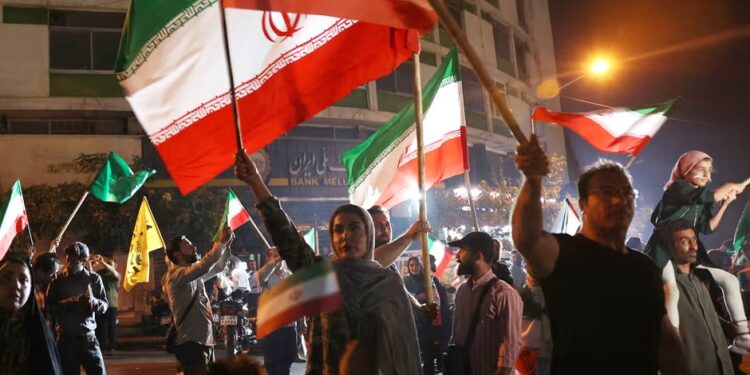Donald Trump has declared a unilateral ceasefire following twelve days of escalating conflict, abruptly halting a war that had dominated headlines and rattled global markets. The announcement, delivered late Monday from Mar-a-Lago, caught both allies and adversaries off guard, with questions swirling about the terms, enforcement, and long-term consequences of the decision.
The former president, who has assumed an increasingly central role in directing US foreign policy despite his unofficial status, said the “mission was accomplished” and that further military engagement was “unnecessary and counterproductive.” The ceasefire announcement came just hours after intensified bombardments in the Middle East and warnings of Iranian retaliation.
No official agreement has been confirmed with the Iranian side, but Trump claimed credit for brokering what he called “a strategic pause,” aimed at preventing a broader regional war. “We’ve shown strength, and now we show wisdom,” he stated during a brief televised address, avoiding questions from reporters.
The so-called 12-day war erupted following a US strike on Iranian nuclear sites, which triggered a wave of missile and drone attacks across the region. The conflict saw escalations in Iraq, Syria, Lebanon and the Persian Gulf, including the downing of US drones and Israeli responses to Hezbollah activity along its northern border.
Critics, including members of Congress from both parties, were quick to challenge Trump’s decision. Democratic Senator Chris Murphy called it “an improvised exit from an improvised war,” while Republican hawks expressed concern that the ceasefire could be seen as weakness if not enforced by strategic deterrence. Meanwhile, progressive lawmakers welcomed the pause but demanded clarity on who authorised the initial strikes and the broader war plan.
International reaction has been mixed. European Union leaders urged all parties to commit to diplomacy and restraint, while Gulf states expressed relief but demanded guarantees against future instability. China and Russia, both previously critical of the US strikes, urged continued de-escalation and a return to international law.
In financial markets, the immediate response was positive. Oil prices retreated slightly from recent highs, gold eased, and equity futures climbed modestly in after-hours trading. The dollar strengthened against major currencies as uncertainty lifted, though analysts warned the situation remains fluid and a resurgence of violence cannot be ruled out.
Questions now turn to the durability of the ceasefire and whether it marks a strategic pivot or a temporary political manoeuvre. With the US election campaign intensifying, Trump’s sudden shift is already being interpreted as part of a broader narrative he is crafting around strength, unpredictability, and control over global events.
Observers await further clarity from the Pentagon and US allies, who were reportedly not given prior notice of the ceasefire declaration. In Tehran, no official comment has been made, though local media have suggested a pause in military activity is being observed “for now.”
newshub finance



Recent Comments